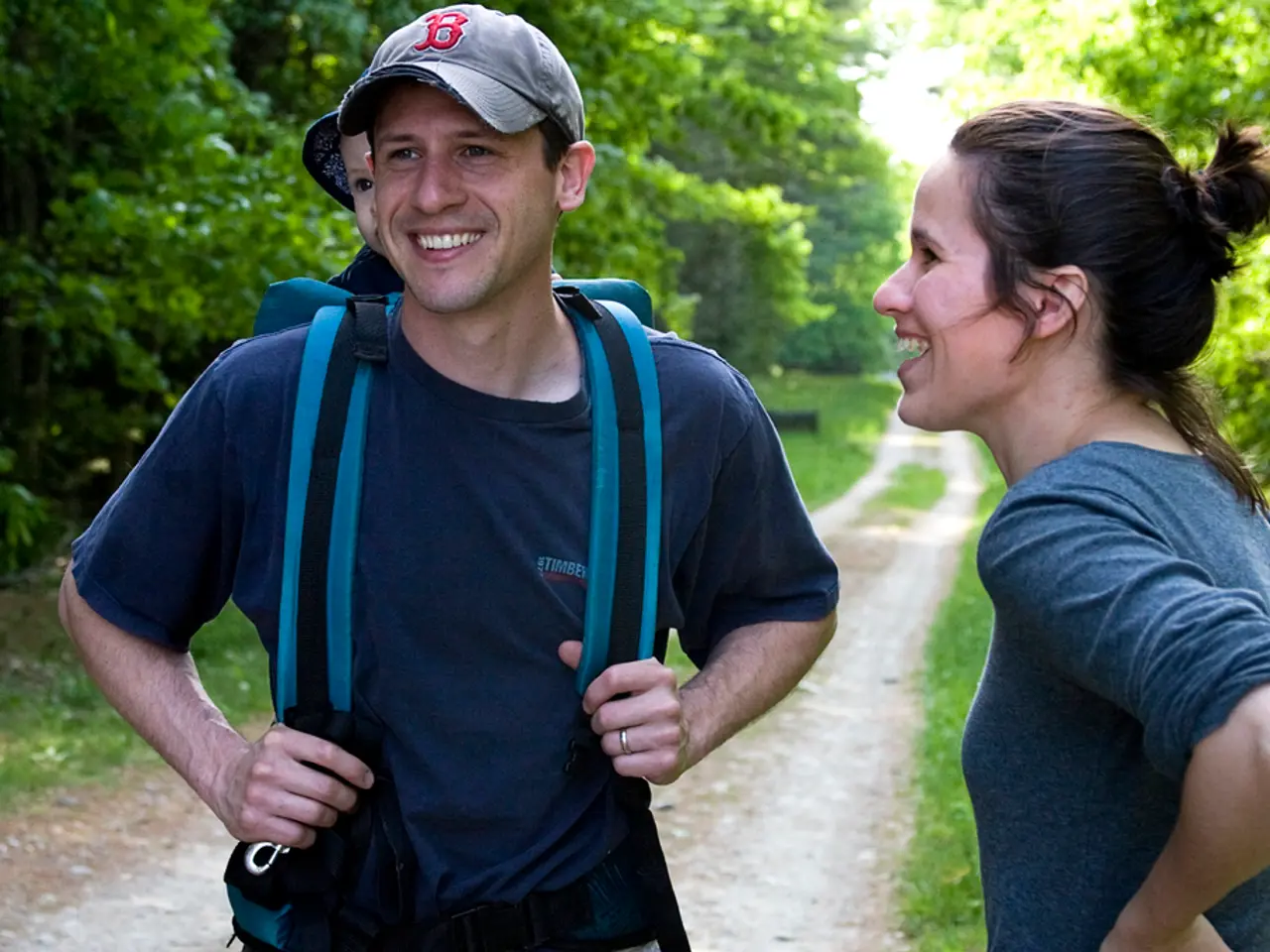Explore the passion of a professional in interpersonal relationships, captivated by the immense positive possibilities that come with increased paternal involvement.
In the ever-evolving landscape of family dynamics, the role of fathers has undergone a significant transformation. This shift, as explored in Anna Machin's book "The Life of Dad: The Making of the Modern Father," sheds light on the biology, psychology, and societal implications of the modern father.
Anna Machin, a renowned doctor of evolutionary anthropology, writer, and broadcaster, is considered a pioneer in the field of fatherhood science. Her groundbreaking work has helped to dispel the myth that a father figure is limited to a biological connection. Instead, she argues that a father figure can be any man who steps in to parent a child.
Dads, it seems, are biologically primed to parent, yet their primary focus is on preparing their offspring to cope in the outside world. This is evident in their role as the key parent when it comes to mental health in teenagers, building resilience and fostering the development of social skills.
From around six months, opportunities for dads to build connection with their children accelerate rapidly. This is a period when children are more "developmentally ready" to engage in deeper interactions, leading to a stronger bond between father and child.
The human brain, adaptive by nature, is not set in stone when it comes to these roles. After a child's birth, both men and women undergo a similar degree of physiological change. New fathers experience a decrease in testosterone and an increase in oxytocin and prolactin, hormones associated with bonding and nurturing.
This shift in roles has been profound, with modern fathers spending, on average, triple the amount of time with their children compared to dads in the 1960s. This increased involvement has far-reaching implications, particularly in the realm of mental health and emotional development.
Big differences still exist between new mums and new dads, with women having a considerable "head start" in bonding with a newborn. However, single parents are not confined by their gender. Whether a mother or father, they are able to pick up what comes instinctively to the other.
The same is true for gay parents. The primary caregiver's nurturing and social cognition parts of the brain are both active, ensuring that the child's needs are met and their emotional and social development is supported.
The positive repercussions of this shift in roles are particularly pronounced in countries like Sweden, Norway, and Finland, where men are enabled to fully co-parent. The effects are cross-generational, with children and society poised to benefit from this new era of shared responsibility and nurturing.
In conclusion, the role of the father has evolved significantly, and continues to do so. The human brain, like the roles it fulfills, is adaptive, and none of these roles are etched in stone. The future of fatherhood promises to be a fascinating study in human evolution and social dynamics.
Read also:
- Peptide YY (PYY): Exploring its Role in Appetite Suppression, Intestinal Health, and Cognitive Links
- Toddler Health: Rotavirus Signs, Origins, and Potential Complications
- Digestive issues and heart discomfort: Root causes and associated health conditions
- House Infernos: Deadly Hazards Surpassing the Flames








